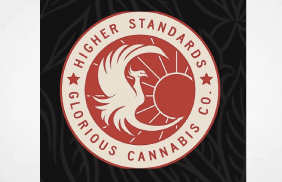Recreational marijuana consumption, possession, and sale became legal in Illinois on February 1, 2020. This landmark ruling made Illinois one of the 20 states to legalize recreational weed use. However, Illinois approved the Compassionate Use of Medical Cannabis Program Act in 2014, permitting patients with debilitating medical conditions to obtain medical marijuana.
Marijuana has become sought-after in the states that legalized its use, with statistics indicating that about 18% of Americans used it at least once in 2019 alone. This guide offers insight into the cannabis laws in Illinois.
Understanding Illinois cannabis laws
Illinois permits the recreational and medical use of cannabis at the state level. Anyone who violates the laws around its use at the federal level can still be subject to sanctions and penalties. Moreover, you can only acquire cannabis from a licensed dispensary, and you may violate the law when you get it from an individual. Licensed dispensaries like nuEra cannabis have a line of cannabis outlets where you can legally purchase medicinal cannabis.
The requirements for getting medicinal cannabis differ from recreational marijuana. Most of these laws equally apply to residents and non-residents since the latter can still consume cannabis in the state without sanctions. However, a few specific laws still dictate how and where non-resident individuals can consume, possess, cultivate, and sell cannabis, whether medicinal or recreational. Generally, if you have a specific dispensary in mind to obtain cannabis from, you must ensure that you meet the following basic requirements as per the law:
- You’re 21 years old or older.
- You have a valid, government-issued photo ID.
These requirements generally apply to medical and recreational marijuana users. No cannabis dispensary has the legal authority to sell you marijuana if you can’t provide valid proof of age and personal identification in the state, and doing otherwise may attract fines and punishment at the state and federal levels.
How much marijuana may a purchaser possess?
The law specifies the amount of medical marijuana individuals can possess in Illinois if they’re 21 years or older. These requirements are different for residents and non-residents of the state. However, it’d help to note that there are no additional rules on ideal strains of marijuana to use. The maximum amount residents and non-residents in the state can possess is as follows:
- Illinois state residents: If you’re a resident, you must ensure that you only possess 30g of cannabis flower, 5g of cannabis concrete, and 500mg of THC in any cannabis product.
- Illinois state non-residents: The state government allows non-resident individuals to possess 15g of cannabis flower, 2.5g of cannabis concentrate, and 250mg of THC in any cannabis product.
While the state may allow the recreational and medicinal use of marijuana for non-residents, individuals can only use it within Illinois and can’t ship it to other states. Doing otherwise constitutes a violation of state law, and individuals can face charges at the state or federal level.
Sale of cannabis in Illinois
Cannabis sales skyrocketed in the first quarter of 2020, with sources claiming that the state made up to US$188 million. That shows that the industry might be booming as projections indicate. This increase in opportunity for profit could be the reason numerous people are venturing into cannabis dispensaries businesses all over the state.
Only licensed dispensaries can sell marijuana in Illinois. They act as legal cannabis outlets that undergo rigorous vetting by a panel for the Cannabis Regulation and Tax Act to assess suitability to dispense and distribute cannabis and cannabis products, whether medicinal or recreational. This requirement cross-cuts through all states, including states that have newly legalized cannabis use, like Kentucky. Permitted cannabis dispensaries should, however, conform to the law and distribute cannabis without breaking it.
Prospective dispensary owners will undergo a rigorous background check to assess their criminal history by giving out their fingerprints. Your application for a cannabis license won’t be approved if you have the following criminal records under your name:
- A violent crime as per Section 3 of the Rights of Crime and Witness Act
- A violation of the state of federally-controlled substance law is classified as a felony.
These offenses are considered excluded offenses and are defined under the Compassionate Use of Medical Cannabis Program Act. Upon verification of occurrence, your application for opening a cannabis dispensary will fall through. Opening a cannabis dispensary in Illinois will also require you to pay a non-refundable application fee starting from USD$2,500 and a two-year license fee that begins from USD$25,000.
Cultivation of cannabis in Illinois
The state restricts cannabis growth at home, and you can be subject to punishment by the law if you do. However, there are exceptions that the state government puts regarding the growth and cultivation of cannabis at home. This exception only applies to people who qualify as patients who may need cannabis or cannabis products as part of their treatment.
They must also be eligible for the Medical Cannabis Registry Identification Card. The requirements around growing medical marijuana for people who qualify to are as follows:
- The growth of cannabis is restricted to only five plants.
- The cannabis plants should be five inches tall and shouldn’t exceed that height.
- The grower should have an IL Medical Cannabis ID card.
It’ll be illegal to grow cannabis if you don’t possess an IL Medical Cannabis Card, and the state shall confiscate your plants if you fail to oblige to the above requirements. You may also be subject to a criminal offense if the state government finds you guilty of growing cannabis illegally at home.
Driving under the influence of cannabis
You shouldn’t drive while under the influence of cannabis in Illinois since it’s illegal and can be punishable by state law. And you should report drivers using cannabis while driving if you spot one in Illinois.
The state’s marijuana DUI factbook states that drivers aren’t allowed to operate a motor vehicle while impaired by drugs, including cannabis. However, there’s still a permissible blood THC limit that you shouldn’t exceed to avoid breaking the law. You may be exempted from any charges if your THC intoxication limit falls under five nanograms in each milliliter of blood.
Keeping such lower limits can be incredibly challenging since you may not have the means to assess the THC amount in your blood. Therefore, it’s safer to avoid consuming any form of marijuana if you know that you’ll drive afterward.
Moreover, there’s still the concern that THC can remain in the blood for weeks and can be detected above the incriminating levels by the authorities. It’s, therefore, ideal to constantly moderate your cannabis consumption to avoid being on the wrong side of the law.
Workplace policies on cannabis use
The Illinois state government prohibits employers from imposing sanctions on the use of cannabis in the workplace. The General Assembly Bill Status for HB4116 reserves employees the Right to Privacy within the Workplace Act, stating that employers may not turn down to hire an individual or discipline employees due to a positive THC drug test result.
That’s not to say that companies may fail to punish employers or reject their applications even though companies may face a few legal hurdles. Companies may also need to be keen during drug tests to ensure that the THC traces found are from cannabis. That’s because consuming legal CBD products might result in small THC traces in urine drug tests.
The law states that companies can’t take severe action against employees for using cannabis during non-work hours. However, employees may be subject to employment sanctions when using cannabis around the workplace. All individuals using marijuana in the workplace should therefore abide by company requirements on active usage of cannabis as the state government permits punishment at the corporate level.
How does Illinois cannabis law compare to the federal law
The federal and state laws on cannabis use in Illinois differ since the federal law criminalizes the use of cannabis. But while the state may have legalized its use in 2020, the basic restrictions and imposed penalties are similar to the federal government. The state law is more applicable to cannabis usage within Illinois, which allows users to consume marijuana for recreational and medicinal purposes.
Marijuana remains illegal under federal law and is classified as a schedule 1 drug. That means using it or as infused in products qualifies as a criminal offense. The clash between federal and state laws has been a heated discussion for a while now. And while there’s a need to strike a balance between the two, it’s yet to come to light how that might happen.
Illinois only imposes restrictions and penalties if cannabis users fail to comply with the law. That includes trying to procure cannabis when under 21 or individuals with no valid government photo IDs trying to use this substance.
Moreover, the state punishes individuals who drive under the influence of marijuana or don’t have a medical license permit for growing cannabis at home. It’s on this line that the federal and state cannabis compare, where the talk is more punitive than regulatory. Nonetheless, it remains unclear whether or not both governments will share similar views and policies on cannabis consumption and legalization in the future.
Conclusion
Cannabis has strict usage laws, and the federal government remains adamant about legalizing its use. States governments like Illinois have more lenient terms of cannabis use, allowing individuals to consume it for recreation and medicinal purposes. Its sale and distribution are only limited through licensed dispensaries, and individuals can, on a limited basis, grow cannabis on their land if they possess valid documentation.
Nonetheless, while using cannabis in the state is legal, Illinois still imposes sanctions and restricts usage to certain levels. Possibly, the federal government will legalize marijuana consumption in the future, even though not entirely. That’ll, perhaps, help avoid a conflict of interest regarding regulating cannabis use, sale, distribution, and cultivation.



















